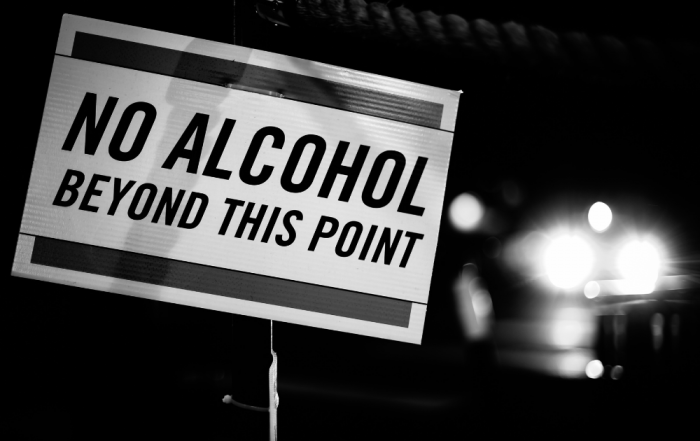Alcohol Awareness Month: The Risks of Alcohol Abuse and How to Find Substance Abuse Grants
Alcohol abuse, alcoholism and alcohol use disorder (AUD) kill over 3 million people each year, according to the National Center for Drug Abuse Statistics. Not only does alcohol abuse take a toll on one’s health, but it can also lead to a pattern of domestic violence, drunk driving, thoughts of suicide or even death. Many people turn to alcohol as a way of handling stress, which is why most people with AUD have experienced a traumatic event in their past or continue to struggle with some sort of mental health disorder.
Alcohol Awareness Month
Alcohol Awareness Month takes place every year in April. The month is sponsored by the National Council for Alcoholism and Drug Dependence (NCADD). The main focus is spreading awareness of the dangers of alcohol abuse and treatment options that are available.

As part of the effort this month to increase awareness, the NCADD encourages people to participate in a three-day alcohol cleanse. The idea is to designate an Alcohol-Free weekend during the month and then see if you are able to go without alcohol for the entire weekend while monitoring what, if any, symptoms may be exhibited to check for any signs of withdrawal.
Examples of withdrawal symptoms include sweating, nausea, headaches and trouble sleeping. Experiencing any of these symptoms could be a sign that you are overly dependent on alcohol. In this case, you should consider reaching out to a healthcare professional to develop a treatment plan to overcome your dependence.
The Dangers of Alcohol Abuse
Having a reliance on alcohol can be incredibly dangerous when it comes to one’s health. According to the Centers for Disease Control and Prevention (CDC), AUD can be the cause of chronic health conditions, including:
- High blood pressure and heart disease
- Strokes
- Liver disease and digestive problems
- Cancer
- A weakened immune system
- Memory problems, including dementia
- Depression and anxiety
In addition to these serious health conditions, excessive drinking can also lead to impaired judgment and poor decision-making, often leading to dangerous and potentially deadly results. This includes higher risks of injuries, such as motor vehicle crashes, falls, drownings and burns. According to the National Highway Traffic Safety Administration (NHTSA), about 32 people die every day in the U.S. as a result of drunk-driving crashes.
Alcohol abuse can also lead to an increase in unprotected sex or sex with multiple partners. Not only can this cause unintended pregnancies, but it can also increase the chances of contracting sexually transmitted diseases (STDs).
Grants to Help with Substance Abuse
GrantWatch.com has a category specifically for grants related to substance abuse. In light of Alcohol Awareness Month, we’re highlighting some of the top grants currently available.
- Grants are available to nonprofits for programs in the areas of alcohol and substance abuse prevention and education.
- Up to $5,000 in grants are available to medical schools to address substance abuse and mental health issues.
- There are also grants for nonprofits for programs to help individuals recover from substance abuse disorders.
- Up to $2,500 is available to Alaska community agencies to assist individuals with mental illness, alcoholism, and substance-related disorders.
- In addition, funding is available to Tribes and Tribal organizations for programs to prevent substance abuse and promote mental health.
- Grants of up to $30,000 are also available to eligible nonprofits for programs that address substance abuse, developmental/intellectual disabilities and mental health issues in the community.
- Additionally, there are grants of up to $5,000 offered to eligible nonprofits to treat and prevent substance abuse disorders.
- Finally, eligible nonprofits and government agencies can apply for grants to support people with mental health or substance abuse challenges.
Finding Treatment

There is no denying that alcohol abuse can be dangerous, both for one’s self and for one’s loved ones. Thankfully, there is no shortage of programs in place to provide treatment for alcoholism. Here are some treatment options that are available:
- Mutual-Support Groups- This includes Alcoholics Anonymous (AA) and other 12-step programs that allow individuals to interact with people with similar problems and lean on each other for support. To find a group near you, visit this link.
- Inpatient Rehab- This form of treatment typically requires 28-30 days in a rehabilitation facility. Rehab treatments could include a supervised medical detox (as needed). Also available are support in the form of behavioral therapy, family therapy and other programs to develop coping strategies to help control addictions.
- Behavioral Treatments- This kind of treatment involves counseling from healthcare professionals to help focus on positively changing drinking behaviors.
- Medication- There are three medications approved in the U.S. to help stop or reduce drinking additions. If interested in seeing if this is an option for you, the first step is to reach out to your healthcare provider.
To find more treatment options, individuals can visit FindTreatment.gov to search for facilities in their area.
GrantNews
With close to 8,000 grants currently available, GrantWatch.com is the leading grant listing directory. A MemberPlus+ subscription is required to view full grant details, including eligibility criteria and application information. For more information, you can also visit the GrantWatch FAQ page.

